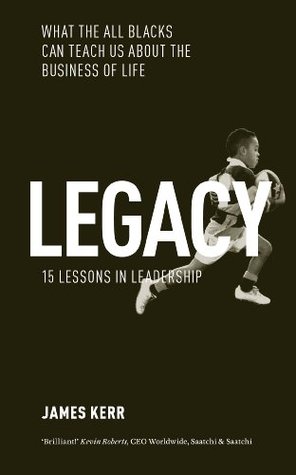More on this book
Community
Kindle Notes & Highlights
Successful leaders balance pride with humility: absolute pride in performance; total humility before the magnitude of the task.
A collection of talented individuals without personal discipline will ultimately and inevitably fail. Character triumphs over talent.
‘You get nowhere without character. Character is essential to individuals, and their cumulative character is the backbone of your winning team.’
Collective character is vital to success. Focus on getting the culture right; the results will follow.
Performance = Capability + Behaviour
Vision without action is a dream. Action without vision is a nightmare.
the inability to translate vision into simple, ordinary, everyday actions.’
Our values decide our character. Our character decides our value.
key is the ability to manage their culture and central narrative by attaching the players’ personal meaning to a higher purpose.
A culture of asking and re-asking fundamental questions cuts away unhelpful beliefs in order to achieve clarity of execution. Humility allows us to ask a simple question: how can we do this better?
Never be too big to do the small things that need to be done.
A winning organization is an environment of personal and professional development, in which each individual takes responsibility and shares ownership.
Like most things in nature, cultures are subject to a more cyclical process, of ebb and flow, growth and decline.
The key, of course, is when we’re on top of our game, to change our game; to exit relationships, recruit new talent, alter tactics, reassess strategy.
Organizational decline is inevitable unless leaders prepare for change – even when standing at the pinnacle of success.
OODA stands for Observe, Orient, Decide and Act. It is quick to apply, and useful for everyday decision-making.
‘It is not the strongest species that survive, nor the most intelligent, but the ones most responsive to change.’
move rapidly into a commanding position, assess your unfolding options quickly and clearly, attack with absolute and ruthless commitment – assess, adjust and repeat.
100-day plans: —— Getting started is deceptively simple. First list around 10 things you need to achieve over the next 100 days. Start each plan with an Action Verb and use no more than 3 words each. Make sure each action is measurable and that each one is a stretch.
Momentum swings faster than we think. One moment we’re on top of the world, the next falling off the other side. The role of the leader is to know when to reinvent, and how to do it.
The person with a narrow vision sees a narrow horizon, the person with a wide vision sees a wide horizon.
Better People Make Better Leaders
‘It’s about purpose and personal meaning . . . Those are the two big things.’
Leaders connect personal meaning to a higher purpose to create belief and a sense of direction.
‘My army won because they knew what they were fighting for,’ said Oliver Cromwell, ‘and loved what they knew.’
Seek the treasure you value most dearly; if you bow your head, let it be to a lofty mountain.
Shared responsibility means shared ownership. A sense of inclusion means individuals are more willing to give themselves to a common cause.
Success, he says, is ‘modest improvement, consistently done’.
Excellence is a process of evolution, of cumulative learning, of incremental improvement.
new organizational forms are the result of strategic imperatives.
you can have all the will in the world but without the right structure in place, your strategy won’t be successful.
‘the aggregation of marginal gains’ or ‘the drive to perfect every controllable detail in search of optimal performance’.
On this team, we tear ourselves, and everyone around us to pieces for that inch . . . Cause we know when we add up all those inches that’s going to make the fucking difference between WINNING and LOSING.
choose the environment that will best develop you towards your objective. Analyze your life in terms of your environment. Are the things around you helping you towards success – or are they holding you back?’
‘It’s not the mountains ahead that wear you out,’ said Muhammad Ali, ‘it’s the pebble in your shoe.’
‘Get up every day and be the best you can be,’ he said. ‘Be the best in the world. . . . give your all for every second of every minute
The first stage of learning is silence, the second stage is listening.
Fly in formation. Be of one mind. Follow the spearhead. This is the ‘being of team’ and the essence of the successful organization.
Rudyard Kipling: For the Strength of the Pack is the Wolf, and the strength of the Wolf is the Pack.
It’s better to have a thousand enemies outside the tent than one inside the tent.
remember your losses more than your wins.’
Embrace expectations.
We don’t play to win, it seems, we play not to lose.
‘I challenge myself to be the best basketball player every moment I’m playing the game,’ Michael Jordon
Successful leaders have high internal benchmarks. They set their expectations high and try to exceed them.
‘It’s the repetition of affirmation that leads to belief,’
the story we tell about our life becomes the story of our life.
From ancient theology to contemporary psychology, our words shape our story and this story becomes the framework for our behaviours; and our behaviours determine the way we lead our life and the way we run our organizations.
‘Great stories happen to those who tell them.’
Stories are how we think. They are how we make meaning of life. Call them schemas, scripts, cognitive maps, mental models, metaphors, or narratives. Stories are how we explain how things work, how we make decisions, how we justify our decisions, how we persuade others, how we understand our place in the world, create our identities, and define and teach social values.


